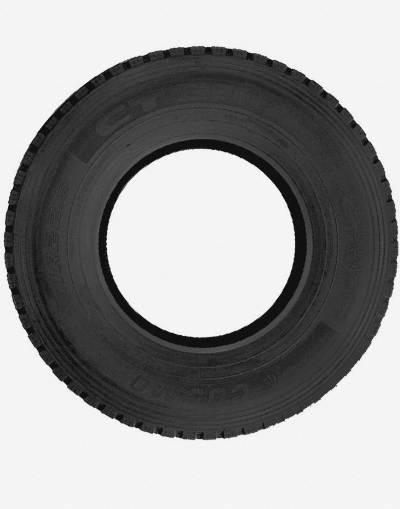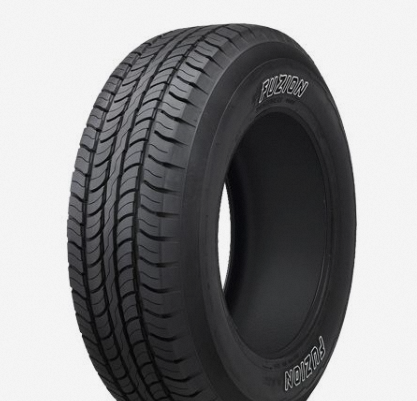Vans Tires are versatile vehicles, transforming from workhorses to family cruisers depending on your needs. They carry precious cargo, navigate busy highways, and might even venture off the beaten path for weekend adventures. Equipping your van with the proper tires is crucial for safety, performance, and overall driving experience. But with a vast array of van tire options available, choosing the right ones can feel overwhelming.
This comprehensive guide will equip you with the knowledge to make an informed decision. We’ll delve into essential factors to consider, explore popular van tires types, and highlight recommended brands to keep your van rolling smoothly and safely.
Understanding Your Van’s Needs: Weight Capacity and Usage
Before diving into specific tire options, it’s essential to understand your van’s unique needs. Here are two key considerations:

-
Weight Capacity: Vans come in various sizes and configurations, each with a designated weight capacity. This includes the van’s unloaded weight and the maximum cargo and passenger weight it can safely carry. Choosing van tires with a load rating that meets or exceeds your van’s weight capacity is paramount for safety and optimal performance. The load rating information can typically be found on a sticker inside the driver’s door jamb.
-
Van Usage: How you use your van will influence the type of tire you choose. If your van is primarily for commuting or running errands, all-season tires might be sufficient. However, if you frequently haul heavy loads, tow trailers, or embark on off-road adventures, you’ll need tires specifically designed for those applications.
Matching Needs with Tires: Once you understand your van’s weight capacity and typical usage patterns, you can explore specific tire options that cater to your needs.
A World of Options: Exploring Van Tire Types
Van tires fall into several categories, each with distinct characteristics suited for different driving conditions:
-
All-Season Tires: A versatile choice for everyday driving, all-season tires deliver a good balance of traction in dry, wet, and light winter conditions. They are ideal for vans used primarily for commuting, errands, and occasional highway travel.
-
All-Terrain Tires: If your adventures extend beyond paved roads, all-terrain tires offer enhanced traction on gravel, dirt, and light off-road conditions. They typically feature a more aggressive tread design compared to all-season tires, providing improved grip on loose surfaces.
-
Cargo Van Tires: Designed specifically for vans that carry heavy loads, cargo van tires prioritize weight capacity and durability. They often have a higher load rating and a reinforced sidewall construction to handle the demands of frequent cargo hauling.
-
LT (Light Truck) Tires: LT tires are a popular choice for vans used for work or towing trailers. They offer increased load capacity and a more robust construction compared to standard passenger van tires. However, LT tires can sometimes have a firmer ride quality and slightly higher noise levels.
-
Winter Tires: For drivers who encounter severe winter conditions with snow and ice, winter tires are essential. They feature a softer rubber compound that stays flexible in cold temperatures, along with a deeper tread design for superior traction on snow and ice.
Choosing the Right Type: Consider your van’s usage patterns and typical driving conditions when selecting a tire type. For example, if you prioritize fuel efficiency and all-season performance, all-season tires might be ideal. However, if you frequently haul heavy cargo or tackle snowy roads, prioritize tires designed for those specific needs.
Decoding the Tread: Understanding Van Tire Features
Beyond tire types, understanding specific tire features can help you make an informed decision:

-
Tread Depth: The tread depth refers to the depth of the grooves in the tire’s surface. Deeper tread provides better grip, especially in wet and winter conditions. As tires wear down, the tread depth decreases, and traction diminishes. Most van tires have wear bars that indicate when the tread depth has reached a point where replacement is necessary.
-
Tread Pattern: The tread pattern refers to the design of the grooves on the tire’s surface. All-season tires typically have a symmetrical tread pattern with grooves designed to channel water away and improve traction in wet conditions. All-terrain tires often feature a more aggressive tread pattern with larger blocks for better grip on loose surfaces.
-
Speed Rating: The speed rating indicates the maximum speed a tire is designed to handle safely. Van tires typically have speed ratings of T (118 mph), S (112 mph), or H (130 mph). Choose a speed rating that accommodates your typical driving speed. Exceeding the speed rating can compromise safety and handling.
-
Load Rating: As mentioned earlier, the load rating refers to the maximum weight a tire can safely support. This is a crucial factor to consider, especially for cargo vans and vans used for towing. Never overload your van’s tires; exceeding the load rating can lead to tire failure, accidents, and property damage.
Top Brands for Your Van: A Reliable Ride Starts Here
With a plethora of van tire brands available, navigating the options can be tricky. Here are a few reputable brands known for their quality and performance:
-
Michelin: A trusted name in the tire industry, Michelin offers a variety of van tire options, including all-season, all-terrain, and cargo van tires. Michelin tires are known for their durability, fuel efficiency, and long tread life.
-
Goodyear: Another industry leader, Goodyear manufactures a comprehensive line of van tires. They cater to various needs, from all-season performance to heavy-duty cargo applications. Goodyear tires are known for their reliability, safety features, and overall value.
-
BFGoodrich: For van owners who crave adventure, BFGoodrich offers all-terrain tires designed for off-road exploration. They prioritize traction on loose surfaces and durability to handle challenging terrain.
-
Briggs & Stratton: A popular choice for budget-minded van owners, Briggs & Stratton offers a good balance of affordability and performance. Their all-season van tires are suitable for everyday driving and light hauling.
-
Nokian: If you live in a region with harsh winter conditions, Nokian is a brand worth considering. They specialize in winter tires for cars, trucks, and vans, offering exceptional traction on snow and ice.
Remember, this is not an exhaustive list, and numerous other reputable van tire brands exist. Conduct research specific to your van model, usage patterns, and budget to find the perfect match.
Essential Van Tire Maintenance Tips
Once you’ve equipped your van with the right tires, proper maintenance is crucial for optimal performance, safety, and longevity. Here are some essential van tire maintenance tips:
-
Regular Inspections: Visually inspect your van tires weekly for signs of wear, damage, or uneven tread wear. Look for cuts, bulges, or foreign objects lodged in the tread.
-
Maintain Proper Tire Pressure: Proper tire pressure is essential for safety, fuel efficiency, and tire lifespan. Check your van’s recommended tire pressure (typically found on a sticker inside the driver’s door jamb) and inflate or deflate the tires accordingly at least once a month, and before long trips.
-
Tire Rotation: Regular tire rotation is vital for even tread wear and extending the lifespan of your tires. Most manufacturers recommend rotating your van tires every 5,000 to 7,000 miles. Consult your van’s owner’s manual for specific recommendations.
-
Alignment Checks: Wheel alignment issues can cause uneven tire wear and reduce fuel efficiency. Have your van’s wheel alignment checked periodically, especially if you notice uneven tire wear or experience handling problems.
By following these simple maintenance tips, you can ensure your van tires perform optimally, keep you safe on the road, and last for many miles to come.
